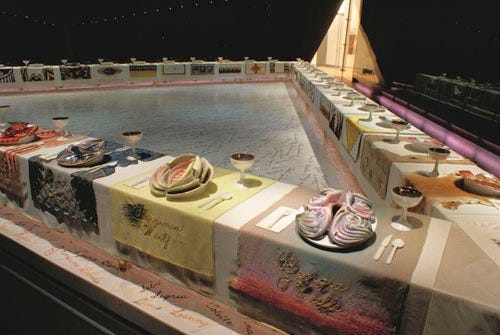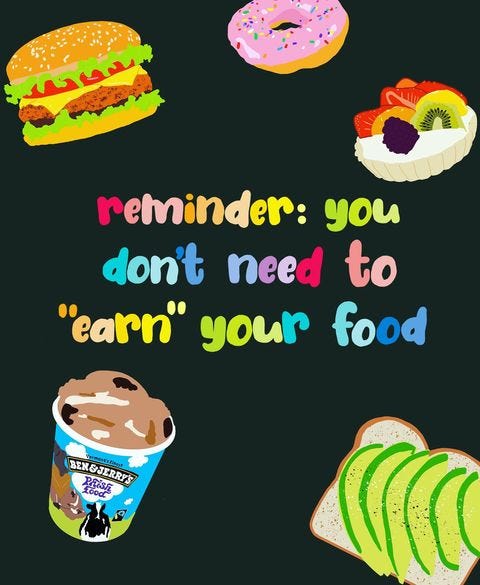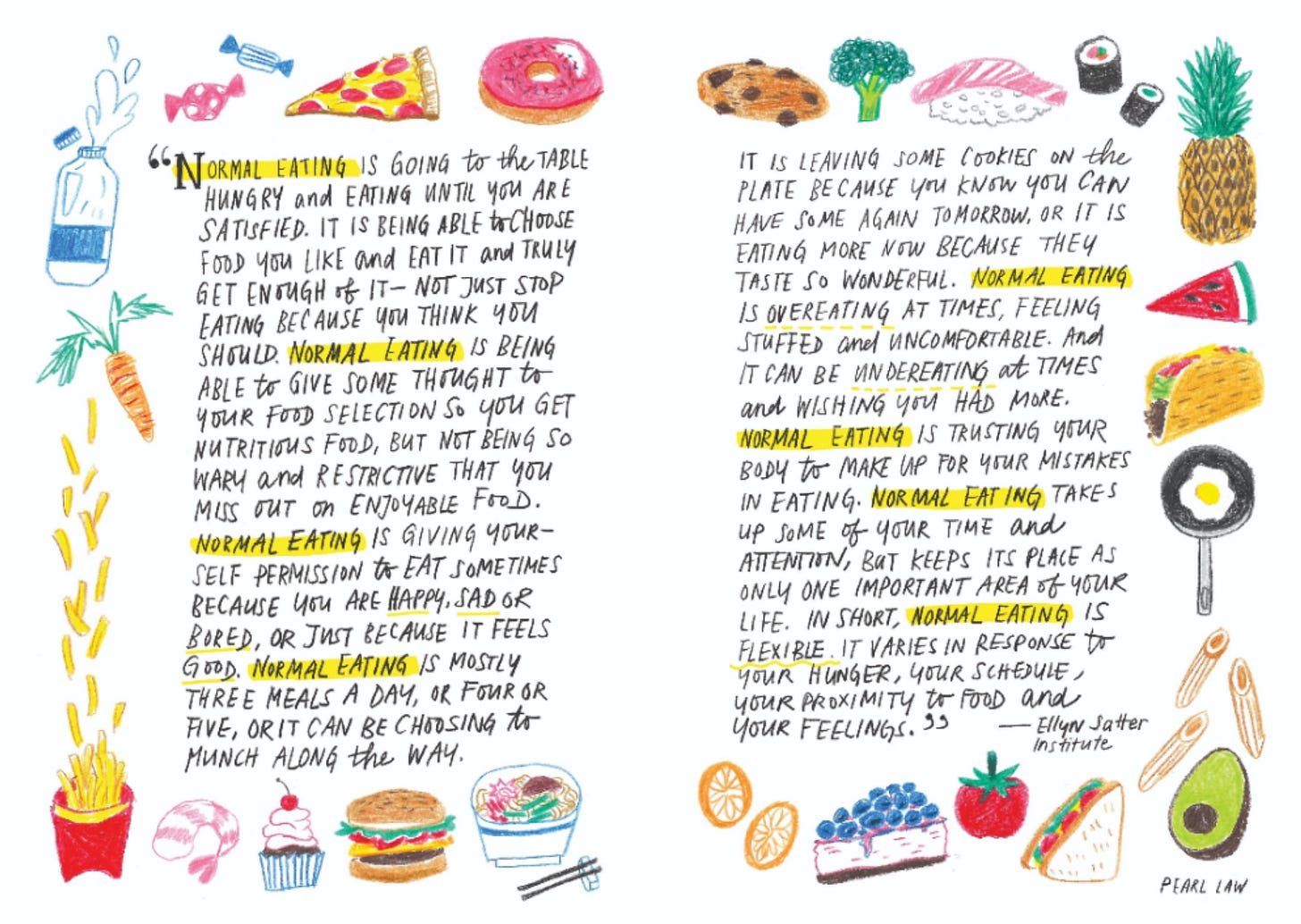In the 1970s, a woman in Chicago attended a dinner party of intelligent, well educated scholars, of both genders. Throughout the night as it was evident to her that the males were dominating both the intellectual and physical event space while the females were simply existing in outer orbit. Fueled by frustrations, the woman chose to make her feelings known through a gargantuan artistic expression. What she would create was a 48 foot triangular dinner table with 39 place settings commemorating a woman of historical or mythical importance. That woman was Judy Chicago and her art was The Dinner Party.
I got to see the breathtaking installation at the Brooklyn Museum a couple summers back. To walk and examine each of the guest’s table settings was magnificent. Chicago purposefully curated and designed who she wanted to bring to her dinner table, a womanifestation of who to include in her conversation.
I was reminded of The Dinner Table this week after seeing this informational graphic from NEDA:
February 22 through 28 is National Eating Disorder Awareness Week so I’m choosing to discuss the matter here.
As much as food can be a foodcation, or a vacation dedicated to culinary pleasures, it can for many be the sole something you want to escape from out of fear and/or shame.
What’s often the case is that this very fear and shame is normalized in our society defined by glamorizing disordered eating behaviors. People, with and without eating disorders, are constantly at odds with encountering and contemplating with toxic, disordered groupthink at, really, any moment.
Eating an excess of carbs or dairy immediately is labeled “fat” day/cheat day/diet-starts-tomorrow moments. Exercise is readily viewed as an activity to offset calories from or for a big meal. During quarantine, people showed off their home baking projects on Instagram with sardonic captions like: “Hoping to fit into my skinny jeans when this all ends 😂😭 #quarantine15”
But for every toxic dinner guest, there are those few guests who will bring positivity, light, and peace of mind. For me, those people are worth sitting at the table with. Like the intricately personalized table setting of every guest on Judy Chicago’s Dinner Table, the people at my table have their own reasons for having a presence during my journey to ED recovery. So in response to the NEDA graphic I shared above, here’s my table.
My biggest supporters: My family and my best friend Kouka
Someone I am always learning from: Christine Byrne, journalist
Someone who makes you smile: Malia Smith, lover of fruit, pastry, hiking, and Hawaii
Someone you are proud of: My friend Schuyler
My recovery hero: Taylor Swift (Yes, that Taylor Swift. Why? Here’s why)
My favorite body liberation activist: Kelly Roberts, runner and founder of the BadassLadyGang
It’s definitely not comprehensive, and to all the people who’ve ever heard and validated me, I invite you to pull up a chair.
It’s important to note that I am not a licensed eating disorder professional. There’s really only so much I could say on the topic to help you if you’re also going through it. I do want to tell you that you’re really not alone even if you are made to feel like it and if you want, I am right there with you and here to talk (or not.)
It is truly up to you about who you feel the most comfortable talking about this - who is at your table. Those people should give you the time, empowerment, and validation that you rightfully deserve for opening up about something so so personal. I will say that once you find those people, and find the help that is right for your needs, and you get to release the bottled up pain, it will begin to feel like freedom.
Again, you’re not alone and here are resources that I hope might help.
Professional Resources:
Contact the National Eating Disorders Helpline at (800) 931-2237 or text “NEDA” to 741741 to be connected with a trained volunteer at the 24 hour Crisis Text Line.
A comprehensive list of Disordered Eating Professional Resources created by the Academy of Nutrition & Dietetics
Health At Every Size Pledge
Media Resources:
Katie’s Year in Recovery - The Sporkful Podcast
Men Have Eating Disorders, Too. Why Don’t They Seek Help? - The Sporkful Podcast
how getting out of shape helped my mental health - Emma Abrahamson
Lana Condor on Living with Body Dysmorphia - SELF
Fat Chance by Kevin Pang
Girl vs. Food by Maya Okada Erickson
I’m A Food Writer - With Some Food Issues by Emma Laperruque
Finding My Way Back to Food in the Face of an Eating Disorder by Rebecca Firkser
Eat Up! by Ruby Tandoh
Beautiful Instagram graphics from visual artists like Lucia Litman:
And one last reminder for ALL of us on what “normal eating is about:






